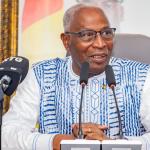Tanzania’s government has charged 98 citizens with treason after violent protests over its disputed 2025 election, sparking domestic outrage and international concern. Religious leaders warn that the prosecutions could worsen divisions and threaten the nation’s fragile peace.
DAR ES SALAAM, TANZANIA — 2025-11-05 — Tanzania’s government has charged 98 people with treason following violent protests that erupted after last week’s disputed general election, deepening fears that the East African nation is sliding further into political repression.
The move marks the first major legal action since the unrest, which opposition groups and human rights organizations say left over 1,000 people dead.
Court filings reviewed by Reuters allege that the defendants “formed an intention to obstruct the 2025 general election for the purpose of intimidating the Executive of the Republic of Tanzania.” The charges—punishable by death under Tanzanian law, though executions have not occurred in decades—accuse the group of attacking security forces and destroying public property.
Escalating Crackdown and Death Toll Dispute
The protests erupted between October 29 and November 3, following an election marred by violence, arrests, and widespread allegations of fraud. The National Electoral Commission declared incumbent President Samia Suluhu Hassan the winner with 97.96 percent of votes, a result that opposition parties and observers from the African Union (AU) called “lacking credibility.”
The main opposition party, CHADEMA, claims more than 1,000 people were killed in clashes with security forces. The government has dismissed those numbers as “exaggerated” but has yet to release its own casualty figures or permit independent verification.
The internet was shut down nationwide for four days during and after the vote, crippling information flow and blocking journalists from documenting abuses.
Two of Tanzania’s most prominent opposition leaders were barred from contesting the election. CHADEMA’s Tundu Lissu has been imprisoned since
April on treason charges, while ACT-Wazalendo’s John Heche was arrested days before the vote and charged with terrorism. Their exclusion from the ballot ignited outrage among citizens, especially young voters who viewed the poll as predetermined.
Human Rights and Legal Concerns
Lawyers and rights advocates have condemned the treason prosecutions as politically motivated. Boniface Mwabukusi, president of the mainland lawyers’ association, warned that many defendants lack legal representation. “These charges are dangerously vague and risk criminalizing dissent,” he said.
Among those accused is a small businesswoman who allegedly encouraged citizens to buy tear gas masks before the protests—an example critics say highlights the arbitrary nature of the prosecutions.
Religious leaders have urged de-escalation. Bishop Benson Bagonza of the Evangelical Lutheran Church in Tanzania cautioned that the government’s actions could inflame tensions rather than restore stability. “The only option for the government to maintain peace now is to grieve with the people instead of arresting them,” he said.
Democratic Erosion and Regional Impact
President Hassan came to power in 2021 after the death of John Magufuli, initially earning praise for reopening banned media outlets and allowing opposition rallies. However, the 2025 election has been widely condemned as a regression toward authoritarian rule.
Observers from the African Union and European Union cited systematic irregularities, including ballot box stuffing, intimidation, and media censorship. Analysts warn that Tanzania’s trajectory reflects a wider democratic backslide across East Africa, where ruling parties increasingly suppress competitive elections while maintaining international partnerships with China and Gulf states less critical of governance standards.
What Lies Ahead
The 98 defendants are expected to appear in a Dar es Salaam magistrate's court in the coming weeks, though no trial date has been set. Legal experts predict lengthy proceedings that could keep detainees imprisoned indefinitely.
Meanwhile, CHADEMA leaders are calling for international mediation and a national dialogue to resolve the crisis—appeals that have so far gone unanswered. As tensions persist, many Tanzanians fear a return to the restrictive climate that characterized the late Magufuli era.
For a generation that had hoped for democratic renewal under Hassan’s presidency, the post-election violence and treason charges mark a profound setback. “Arresting protesters will not restore peace,” Bishop Bagonza warned. “It will only deepen the wounds tearing at Tanzania’s social fabric.”
Leave a comment
Your email address will not be published. Required fields are marked *





